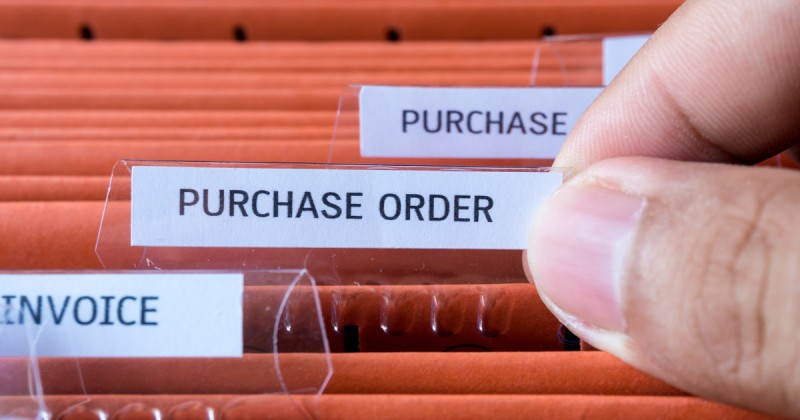
Where do self-employed stand with delays to purchase orders?
Freelancer’s Question: I submitted invoices to a client (as requested) before a Purchase Order (PO) was raised. However, the PO took ages to come through -- over the 30-day standard payment period. Now the client is saying that the clock starts when a 'correct' invoice with PO is submitted, rather than when I sent it in. That can't be right, can it? They also “don't pay late fees,” apparently. I can't find anything in legislation to say they can ‘opt out.’ Do you have any wisdom on this? It’s pretty urgent and unsettling.
Expert’s Answer: Purchase Orders (POs) frustrate a lot of freelancers. They feel like yet another administrative hoop you have to jump through just to get paid. A lot of people have horror stories to share of the Kafka-esque experiences they go through trying to chase a PO between a client’s finance team and whoever commissioned the work!
But POs themselves are not necessarily a bad thing for the self-employed. Getting a PO means the work has been pre-approved and is already registered with ‘Accounts Payable.’ This should (though we don’t live in an ideal world) lead to you getting paid quicker. It avoids the situation where a director or someone in the finance department decides to query your invoice and there’s an internal inquisition about who booked the job in, who has the budget to pay, and why it wasn’t flagged up to whoever. And all the while you’re just waiting to get paid.
What are the benefits of Purchase Orders?
As long as they are written correctly (not all are by any means), POs should also provide clarity to both sides about the scope of the work, the price, expectations around delivery and, crucially, purchase terms, including the timescale for payment. As a written document, a PO serves as a legally-binding contract between the two parties.
So it isn’t POs themselves that are the problem.
It’s the all-too-frequent poor practice in how they are administered by companies that causes all the trouble.
Ideally, secure a purchase order before you begin work
We’d always advise any freelancer to secure a PO (if a client insists on issuing one) in advance of starting the work, if possible.
This is to give you a chance to check you aren't bound by any unexpected payment terms that may be included by the client. We have seen some unscrupulous businesses include detrimental terms in their POs that push back payment periods to 90 or 120 days, plus other stipulations that disadvantage a supplier.
Remember, PO terms are binding...
Once you accept the job and the PO, you are bound by these terms. So you want to give yourself the chance to check them before you commit to the work.
In relation to late payment and POs specifically; there is nothing in the relevant late payment legislation that says you have to wait to receive (and accept) a PO, before you can issue an invoice. Nor is there anything in the rules stating that invoices without POs can be disregarded. A lot of businesses adopt a ‘no PO, no pay’ policy. But it simply isn’t backed up in law.
What the law says on late payment
On late payment costs and charges, the legislation defines the "relevant period" for calculating charges (i.e. agreed payment period) as follows:
(2H)“The relevant 30-day period” is the period of 30 days beginning with the later or latest of—
(a)the day on which the obligation of the supplier to which the debt relates is performed;
(b)the day on which the purchaser has notice of the amount of the debt or (where that amount is unascertained) the sum which the supplier claims is the amount of the debt.
Finally, your client's claims don't stack up
Again, no mention of POs, and certainly no stipulation that ‘the clock starts’ when a ‘correct’ invoice with a PO is received!
Nor is there any mention of ‘get out’ or ‘opt-out’ clauses for avoiding late payment charges, either related to when a PO is issued or otherwise.
In our view, in this case your initial invoice satisfies criteria (b), i.e. providing notification of the amount of the debt owed. The ‘relevant period’ after which payment legally qualifies as late would therefore be 30 days after receipt of this invoice. If this period has now expired, you are entitled to charge interest on the overdue amount and claim debt recovery costs. We wish you all the best in proceeding to that end.
The expert was Adam Home, senior collections manager at Safe Collections.



Comment
Log in or create your account to react to the article.